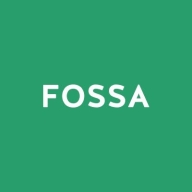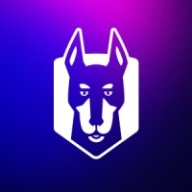

Snyk and FOSSA compete in the software security and license compliance market. Snyk appears to have the upper hand due to its robust vulnerability detection and ease of integration with developer tools.
Features: Snyk is known for its ease of use, integration capabilities with Slack and GitHub, and a reliable vulnerability database that reduces false positives. It supports vulnerability detection across multiple platforms, including CI/CD environments. FOSSA specializes in open source license compliance and includes deep dependency scanning to identify components in builds and manage licenses effectively. Its policy engine is beneficial for ensuring legal compliance and integrating with developer tools to streamline workflows.
Room for Improvement: Snyk can improve by expanding its security scanning types such as SAST and DAST, increasing language support, and refining notification filtering to prevent overload. It also needs better visibility and reporting for managing large projects. FOSSA should enhance its security scanning beyond licensing, improve triage processes, and categorize projects for more efficient management of large portfolios. Enhanced documentation, onboarding, and scalable user interfaces for larger organizations are desirable.
Ease of Deployment and Customer Service: Both Snyk and FOSSA offer cloud and on-premises deployments, catering to diverse user requirements. Snyk is preferred for quick cloud deployment and commendable support through various channels, whereas FOSSA provides comprehensive technical support and effective communication, although there's a demand for improved documentation and advanced guidance.
Pricing and ROI: Snyk is seen as a premium product with higher costs due to extensive features but offers a good return on investment by enhancing developer productivity and speeding up vulnerability resolution. FOSSA is competitively priced, providing cost-effectiveness in its licensing model, recognized for automating license management tasks and saving resources. Both solutions offer value that justifies their costs, despite Snyk's pricing potentially being a hurdle for smaller organizations.
| Product | Market Share (%) |
|---|---|
| Snyk | 10.5% |
| FOSSA | 3.1% |
| Other | 86.4% |

| Company Size | Count |
|---|---|
| Small Business | 5 |
| Midsize Enterprise | 1 |
| Large Enterprise | 8 |
| Company Size | Count |
|---|---|
| Small Business | 21 |
| Midsize Enterprise | 9 |
| Large Enterprise | 22 |
Snyk excels in integrating security within the development lifecycle, providing teams with an AI Trust Platform that combines speed with security efficiency, ensuring robust AI application development.
Snyk empowers developers with AI-ready engines offering broad coverage, accuracy, and speed essential for modern development. With AI-powered visibility and security, Snyk allows proactive threat prevention and swift threat remediation. The platform supports shifts toward LLM engineering and AI code analysis, enhancing security and development productivity. Snyk collaborates with GenAI coding assistants for improved productivity and AI application threat management. Platform extensibility supports evolving standards with API access and native integrations, ensuring comprehensive and seamless security embedding in development tools.
What are Snyk's standout features?Industries leverage Snyk for security in CI/CD pipelines by automating checks for dependency vulnerabilities and managing open-source licenses. Its Docker and Kubernetes scanning capabilities enhance container security, supporting a proactive security approach. Integrations with platforms like GitHub and Azure DevOps optimize implementation across diverse software environments.
We monitor all Software Composition Analysis (SCA) reviews to prevent fraudulent reviews and keep review quality high. We do not post reviews by company employees or direct competitors. We validate each review for authenticity via cross-reference with LinkedIn, and personal follow-up with the reviewer when necessary.